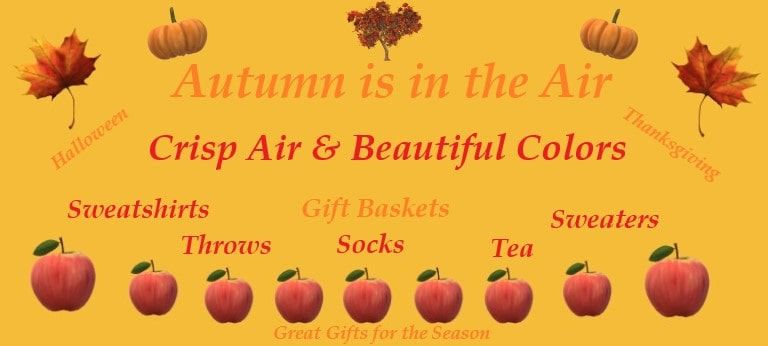|
The Christmas Season is over, the New Year has come, and optimism “even though” shines through, thus we want to share some innovating technology, some thoughts on the past year and some thoughts of the future.
Declared by the 68th UN General Assembly, 2015 was the International Year of Soils. It’s intent; to promote education of the importance of soil for the survival of the earth and us. The key messages from the FAO, the Food & Agriculture Organization campaign include: Healthy soils are the basis of healthy food production; Soils are the foundation for vegetation which is cultivated and managed for feed, fibre, fuel and medicinal products; Soil supports our bio-diversity and they host a quarter of the total; Soils help to combat and adapt to climate change by playing a key role in the carbon cycle; Soils store and filter water by playing a key role in the carbon cycle; and last but most important – Soil is a Non Renewable Resource it’s preservation is essential for food security and our sustainable future. To learn more about what was done this past year with events continuing into 2016 across the world, please visit http://www.fao.org/soils-2015/news/en/. This is an important educational process that must continue so please keep up the discussions. A study from Grantham Centre for Sustainable Futures showed that in the last 40 years we have eaten through 33% of the earths topsoil, exponentially thinking this is a frightening thought. Development and harmful agricultural practices are the main causes. Topsoil is one of the most important pieces for the survival of every eco-system. Fertile soil takes thousands of years to develop and contains billions of beneficial micro-organisms. The American Farmland Trust states that we lose nearly 50 acres of farmland an hour to development, this is land gone forever, land that will never provide sustenance to us or the earth. Harmful agricultural practices are dong long term damage to soil from the use of chemicals from pesticides, to hormones to antibiotics and on– please, please support organic farms. Trees are anchors for the soil and their removal by the clear cutting of our forests, taking everything that can possibly be used, leaving nothing behind for regeneration of any kind has irreparable consequences and leaves a future for our children that is thoughtless in what we have done. Please support and promote sustainable forest management. To learn more visit http://www.rainforest-alliance.org/work/forestry, as well as many other great informational sites on this topic. Hooray to the Ban on Micro-beads ! President Obama signed into law the Micro-Free Waters Act of 2015 years. This ban is a really great thing and we do applaud this action. Here’s why. Micro-beads are plastic microspheres, found in multitudes of products; cosmetics, personal care products such as toothpaste, soaps, exfoliating agents etc. They are made out of polyethylene most frequently, but can be made of petrochemical plastics like polypropylene or polystyrene. These micro-beads are washed down the drain and go into the water supply. Water treatment facilities are not equipped to remove these particles which do not break down. Once in the water supply, from brook to ocean, these particles sit, have been shown to be excellent collectors of other chemical pollutants and then are inadvertently eaten by the fish that you someday may eat. The law states that by mid-2017 production is banned with a phase out in sales over the next two years. Not quick enough and frankly why ? We know the damage this is doing and how quickly it is happening. What are we truly protecting first and foremost ? Not the first harmful product that has had these slow phase outs, Teflon anyone and many more. We’re just sayin … Forbes recently published a good article about this topic which explains how to find products with micro-beads in your home, how to return them if you choose, alternatives and more. To view: http://www.forbes.com/sites/carmendrahl/2016/01/09/what-you-need-to-know-about-microbeads-the-banned-bath-product-ingredients/. A new product though not new technology just more refined that we found to be really cool, is called the Seabin. Developed by a Marine Tech Company in Australia, designed by Pete Ceglinski who teamed up with boat builder Andrew Turon, developing this revolutionary compact way to clean up local waterways. Made from recycled plastic it is a bin that is hooked up to a water pump, trash gets sucked in, is caught in a natural fiber bag, the water goes right through being returned to the waterway. The bag is pulled out when full, the material collected can be sorted for recyclables and the rest disposed of properly. Though not a new alternative for waterway waste management, its smaller design and affordability is great for use at marinas and who knows this may assist in large scale clean waterway technology in the future. Another innovating idea again not new but becoming more refined is the use of different brines mixed with rock salt in de-icing the roads. Specifically beet juice brine though other brines like pickle brine, or potato brines have been used. The beet juice brine mixed with the sodium chloride, or more commonly rock salt which is extremely bad for our environment, reduces the usage of this heavy salt and as well increases its melting capabilities to a lower temperature. In Canada this year they are trying a white beet brine to eliminate discoloration issues, aesthetic issues that came from the purple beets. Again this is the kind of action and thinking we like to see being explored. We hope everyone had a wonderful holiday season and that you look forward to 2016 as we do. Our New Year’s resolutions along with our personal resolutions, involve this web site, living more naturally and spreading the word. We hope that you ride along with us this next year which we know will prove to bring enlightenment of many things to many. We hope to be a small part of it. Live Green and Remember What Is Truly Important. It is not enough to be busy. So are the ants. The question is: What are we busy about ? – Thoreau
1 Comment
|
My Organic Access, llcBringing together thoughts and idea's to elevate your knowledge of our environment & health. Archives
November 2020
Categories |
- My Organic Access Home Page
- Organic Clothing
- Organic Bed & Bath
- Natural & Organic Body Care
- Natural Health and Wellness
- CBD Products
- Organic Gifts
- Build Your Own Organic Gift Basket
- The Organic Kitchen
- Natural Home & Garden
- Natural & Organic Cleaning
- Organics On Sale
- About Us and You
- Contact Us
- Gift Idea's for Spring and Summer
- My Organic Access Home Page
- Organic Clothing
- Organic Bed & Bath
- Natural & Organic Body Care
- Natural Health and Wellness
- CBD Products
- Organic Gifts
- Build Your Own Organic Gift Basket
- The Organic Kitchen
- Natural Home & Garden
- Natural & Organic Cleaning
- Organics On Sale
- About Us and You
- Contact Us
- Gift Idea's for Spring and Summer


 RSS Feed
RSS Feed